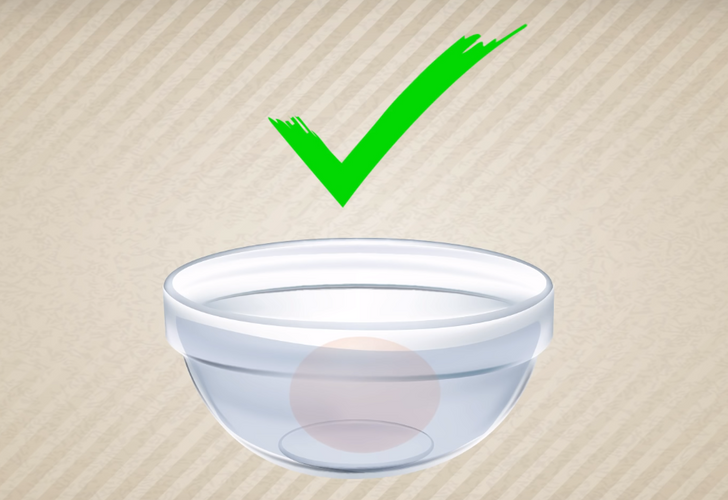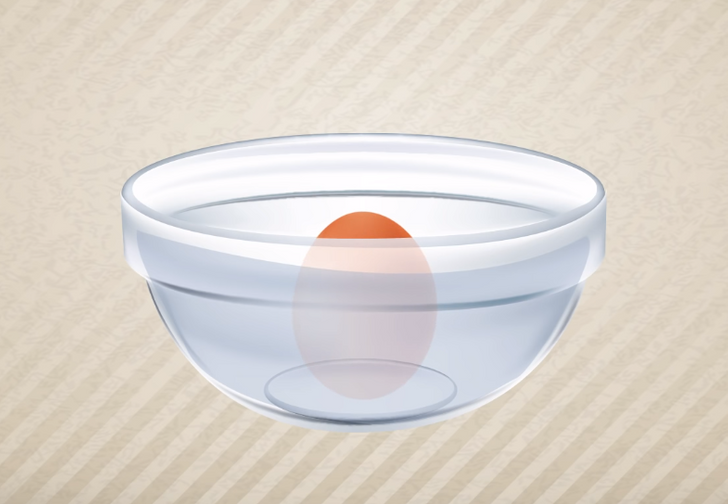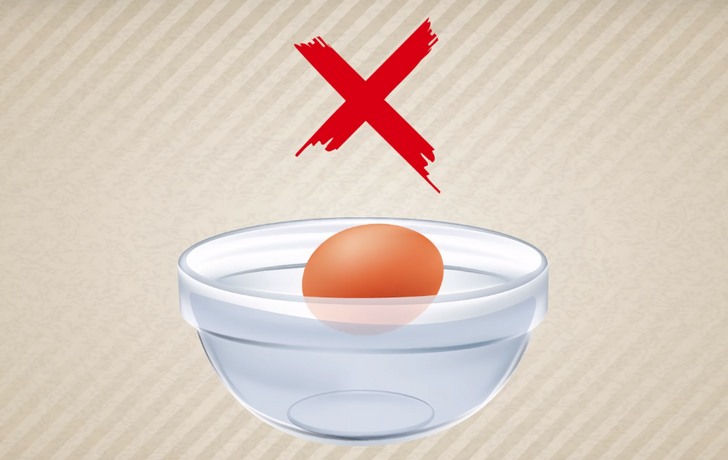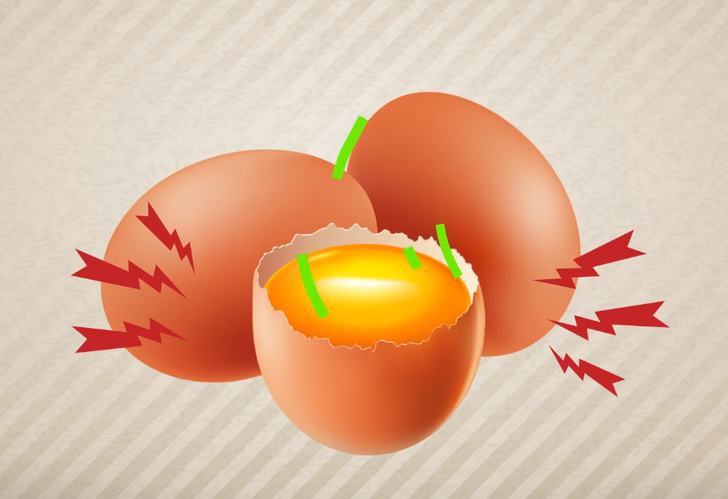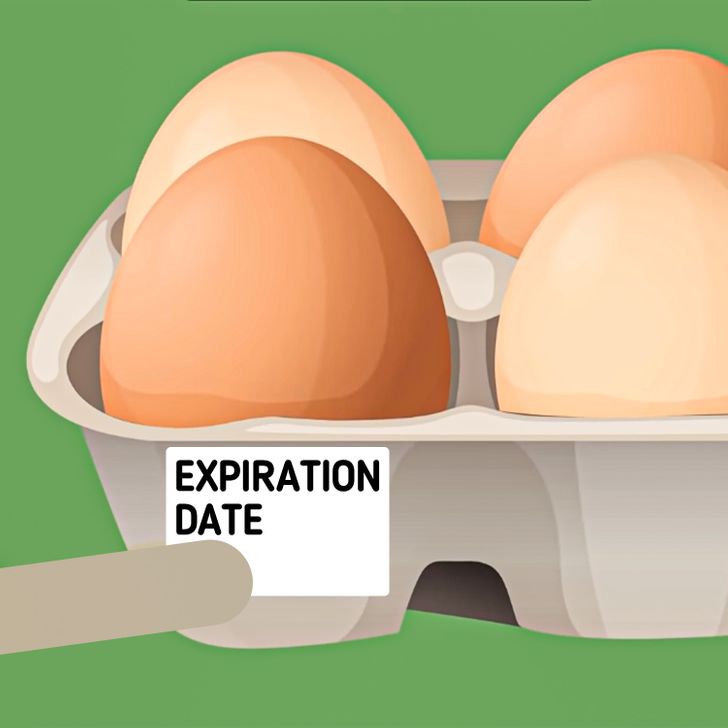How to Spot a Spoiled Egg
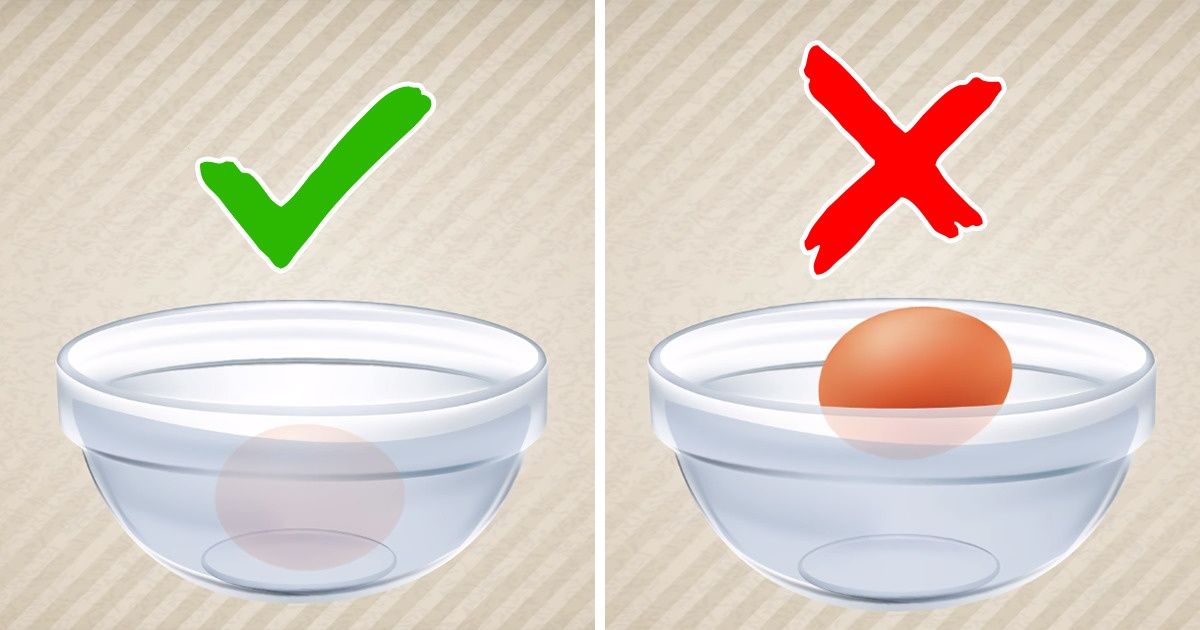
The main danger of consuming an expired egg is the chance of getting an intestinal infection, like salmonellosis. When infected, a person might get chills, a stomachache, and a fever. People with weak immune systems are in a bigger risk zone. In order to protect yourself and your loved ones, make sure to check the egg before putting it on the table.
5-Minute Crafts found 4 methods for checking the freshness of eggs. They all are pretty simple and won’t take much time.
Method #1: Sinking into the water
You’ll need:
-
An egg
-
Water — as much as is required to immerse the egg completely
-
A bowl for water
What to do:
Immerse the egg into the water.
-
If the egg stays on the bottom, it’ a good sign. You can eat it without any fear, because there is a lot of time until its expiration date.
-
If the egg stands vertically in the water, it means it’s about to expire soon. Eat it as soon as possible. The best way to do this is to hard boil it.
-
If the egg floats on the surface, get rid of it right away — it’s already gone bad.
Method #2: Shaking
You’ll need:
-
An egg
How to check:
Bring the egg to your ear and shake it a bit:
-
If you don’t hear anything, it means the egg is fresh. You can bravely use it for cooking.
-
If you hear a squelch while shaking, it’s a true sign that the egg has started to spoil. The liquid inside it has gradually evaporated, the white and the yolk have started to dry, and this has resulted in the appearance of air cavities. The inner part of the egg is dangling while shaking and making the squelching sounds.
Method #3: Checking the smell
You’ll need:
-
An egg
-
A plate
How to check:
1. Break the egg and pour it on the plate.
2. Smell it. If the egg is spoiled, you’ll detect the smell of hydrogen sulfide. You’ll sense it instantly and won’t mix it up with anything else. The smell will remain, even after cooking it. You should dispose of this egg right away.
Method #4: Examining the contents
You’ll need:
-
An egg
-
A plate
How to check:
Break the egg, pour it on a plate, and examine it carefully:
-
If the egg is fresh, it will have a compact look. The yolk will be firm and bulging, while the white will be thick and viscous.
-
If the egg is spoiled, it will spread over the plate like water. You might see black and green spots in the white. The yolk will be flat and will start to swim freely.
Things to keep in mind
-
Check the expiration date. In most cases, it is 45 days since the moment of packaging. However, keep in mind that eggs can remain fresh for the next 2 weeks in they are stored correctly.
-
Don’t wash eggs before storing them. You could wash off their protective layer and reduce their shelf life.
-
If you see blood spots on a broken egg, it’s ok. You can eat it. These clots form when blood vessels start to break down. It has nothing to do with the product’s freshness.
- It doesn’t matter what color the yolk is — orange or yellow. Its color depends on the hen’s food. It’s impossible to detect its freshness by the yolk color.
-
Don’t store eggs on the fridge door. Due to the constant changes in temperature, they will spoil faster.
